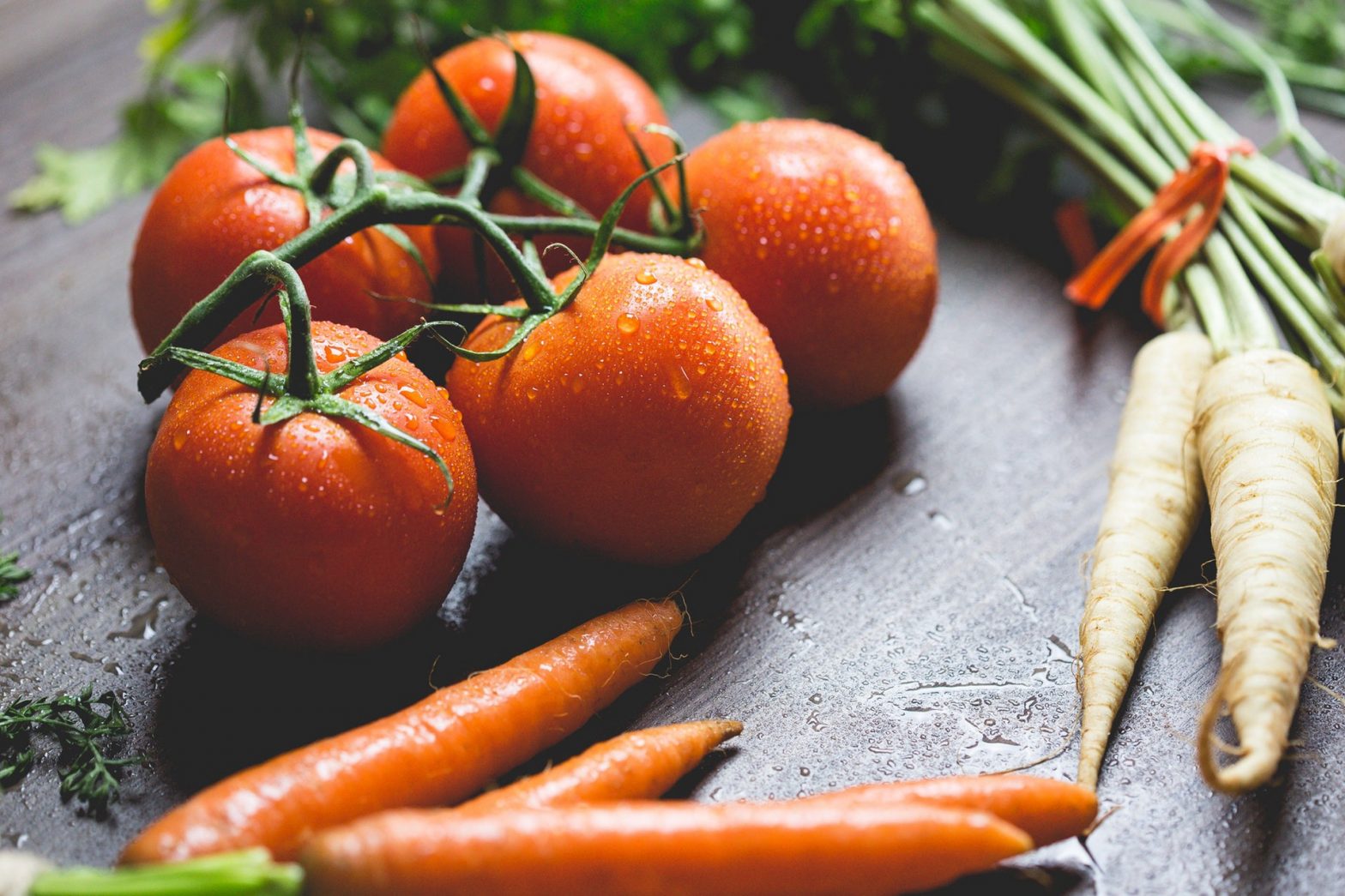Are You Eating the Top 7 Foods to Protect Your Vision?
Protecting the health of your vision is a priority many people overlook.
But certain vitamins and minerals found in our diet have been shown to delay or even prevent the most common causes of visual impairment, such as:
- Cataracts, or cloudy areas that block vision in the lens of your eye.
- Glaucoma, an eye condition that causes excessive fluid in your eye and creates pressure that damages the optic nerve.
- Age-related macular degeneration (AMD), a condition that causes vision loss in the part of the eye that controls your central vision.
Each of these conditions can lead to the loss of your sight.
Besides protecting your eyes from harmful UV rays with polarized sunglasses, you can also give them the vitamins and nutrients they need to stay strong.
Can your diet really ward off vision loss?
Our bodies don’t produce enough of the vitamins and nutrients our eyes need to stay healthy.
And the US Centers for Disease Control and Prevention (CDC) says 87% of Americans aren’t meeting their veggie intake goals; and 76% are missing out on their recommended amount of fruit.
“While there is no definite proof, some studies suggest that eating a diet rich in certain nutrients may help,” Dr. Ivana Kim, associate professor of ophthalmology at Harvard Medical School, encourages.
So which nutrients should you load up on if you want healthy eyes well into your old age?
1. Dark Leafy Greens (like kale and spinach)
Your retina naturally contains lutein and zeaxanthin even though your body cannot make zeaxanthin on its own.
You’ll want to add dark leafy greens for their lutein and zeaxanthin, which improve pigment density in your eye’s macula.
This extra protection shields your eyes from the excess of harmful UV rays and blue light you encounter on a daily basis.
According to the American Optometric Association, many studies have shown that lutein and zeaxanthin:
- Reduce the risk of chronic eye diseases, including AMD and cataracts
- Significantly decrease the risk of developing cataracts
- May improve visual performance
Lutein and zeaxanthin have also been studied for their ability to neutralize free radicals so they don’t cause harm to your cells.
Bonus: Dark green leafies also contain zinc, a trace mineral your eyes dig.
Paul Dougherty, MD, medical director of Dougherty Laser Vision in Los Angeles, tells Health.com that adding more antioxidants and zinc to your diet reduces your macular degeneration risk.
2. Orange Bell Peppers
Orange bell peppers have more vitamin C and zeaxanthin than any other fruit or veggie you can add to your diet.
The beneficial reasons of adding Vitamin C to your diet include:
- Slowing the progression of AMD
- Delaying the loss of visual sharpness
- Promoting healthy blood vessels in your eyes
- Decreasing the risk of cataracts
Plus, orange peppers also have beta-carotene, the type of vitamin A that gives carrots their characteristic orange color. Vitamin A lowers your risk of cataracts, boosts night vision, and keeps your retinas working in tip-top shape.
3. Dark Berries (blackberries, blueberries, raspberries, strawberries)
Dark berries contain an abundance of antioxidants.
Antioxidants fight free radicals in your body, or those that cause damage to your cells and lead to the growth of cancerous cells.
Dr. Kim says:
“The retina, especially the macula, is thought to be an environment of high oxidative stress, meaning that there is an abundance of free radicals — molecules that damage proteins and DNA within cells.”
Since antioxidants fight free radicals, they’re thought to help safeguard the retina from harm.
Plus, the anthocyanins, or the dark blue/purple pigment in berries, also improves circulation.
Berries not only lower inflammation, they also decrease blood pressure — two major risk factors for developing macular degeneration.
Christine Gerbstadt, M.D., author of Doctor’s Detox Diet: The Ultimate Weight Loss Prescription, says berries also “prevent blockages to the arteries that feed oxygen to the retina.”
These tiny fruits sure pack a punch of healthy for your eyes, very similar to the next food on our list.
4. Almonds
A handful of almonds will give you half your recommended daily dose of vitamin E, which has been shown to slow your chances of developing AMD and the formation of cataracts.
Doctors estimate that if cataracts could be delayed for just 10 years, half of all cataract-related surgeries wouldn’t be necessary.
5. Cold-Water and Fatty Fish (salmon, tuna, sardines, trout, etc.)
Diets rich in fish have been studied for their heart-healthy and vision-protecting properties thanks to the fact that the omega-3 fatty acids in certain types of fish are anti-inflammatory.
As we’ve mentioned, inflammation is a main trigger for AMD.
Researchers have connected omega-3 fatty acids with the removal of plaque build-up in the eye area causing macular degeneration.
“Boosting your DHA by eating four 3.5- to 4-ounce servings of cold-water fish weekly is a wonderful way to help prevent eye disease,” Steven Pratt, M.D., the author of SuperHealth tells AARP.
Research also indicates that those who eat the highest animal-based omega-3 fatty acids have a 60% lower risk of AMD compared to those who eat the least.
Low levels of DHA have also been linked to dry eye syndrome as well so there’s no reason not to add more fatty fish to your diet.
6. Walnuts
Bursting with antioxidants, vitamin E, and omega-3 fatty acids, walnuts are amazing for fighting inflammation and protecting your vision at the same time.
Studies even correlate eating a handful of walnuts a day with cutting your risk of a cardiac event by as much as 50%!
7. Eggs
Eggs pack a powerful boost for your eye health as they have both omega-3 fatty acid DHA and a readily available source of eye-loving lutein and zeaxanthin.
Dr. Mercola explains that even though egg yolks technically have less lutein and zeaxanthin than other veggies on our list, because they’re a mix of healthy fat and protein, they’re “in a highly absorbable, nearly ideal form.”
Just don’t cook them too long or you’ll damage the lutein and zeaxanthin (think: poached, soft-boiled, or raw).
What Else Can You Do to Protect Your Vision?
Besides incorporating these helpful foods to your diet, you can protect your vision by:
- Having an eye exam every year to alert your doctor to changes in your eye health sooner rather than later.
- Updating your prescription. Your eyes don’t get stronger, but weaker, if you hold off on giving them the prescription strength they really need.
- Coating your lenses with anti-UV protection so your eyes are shielded from UV damage no matter where you are.
- Choosing polarized sunglasses to eliminate glare when you’re outside.
- Adding anti-blue light coating to ward off the harmful effects of blue light from computer and digital device use.
The best part about updating your prescription is picking out new glasses.




Comments
Leave a Comment